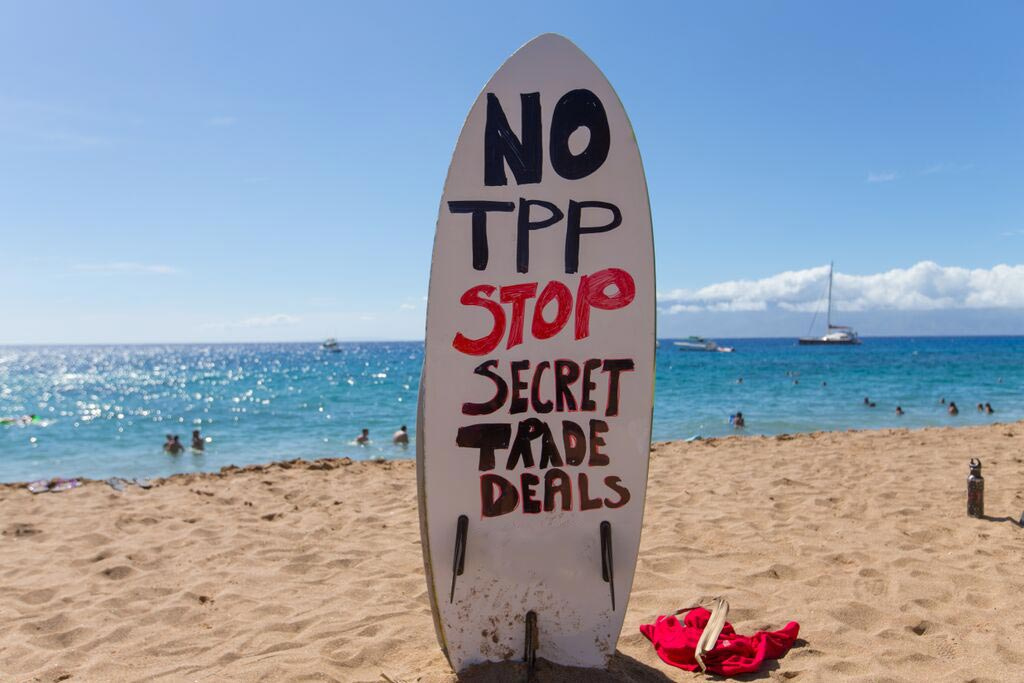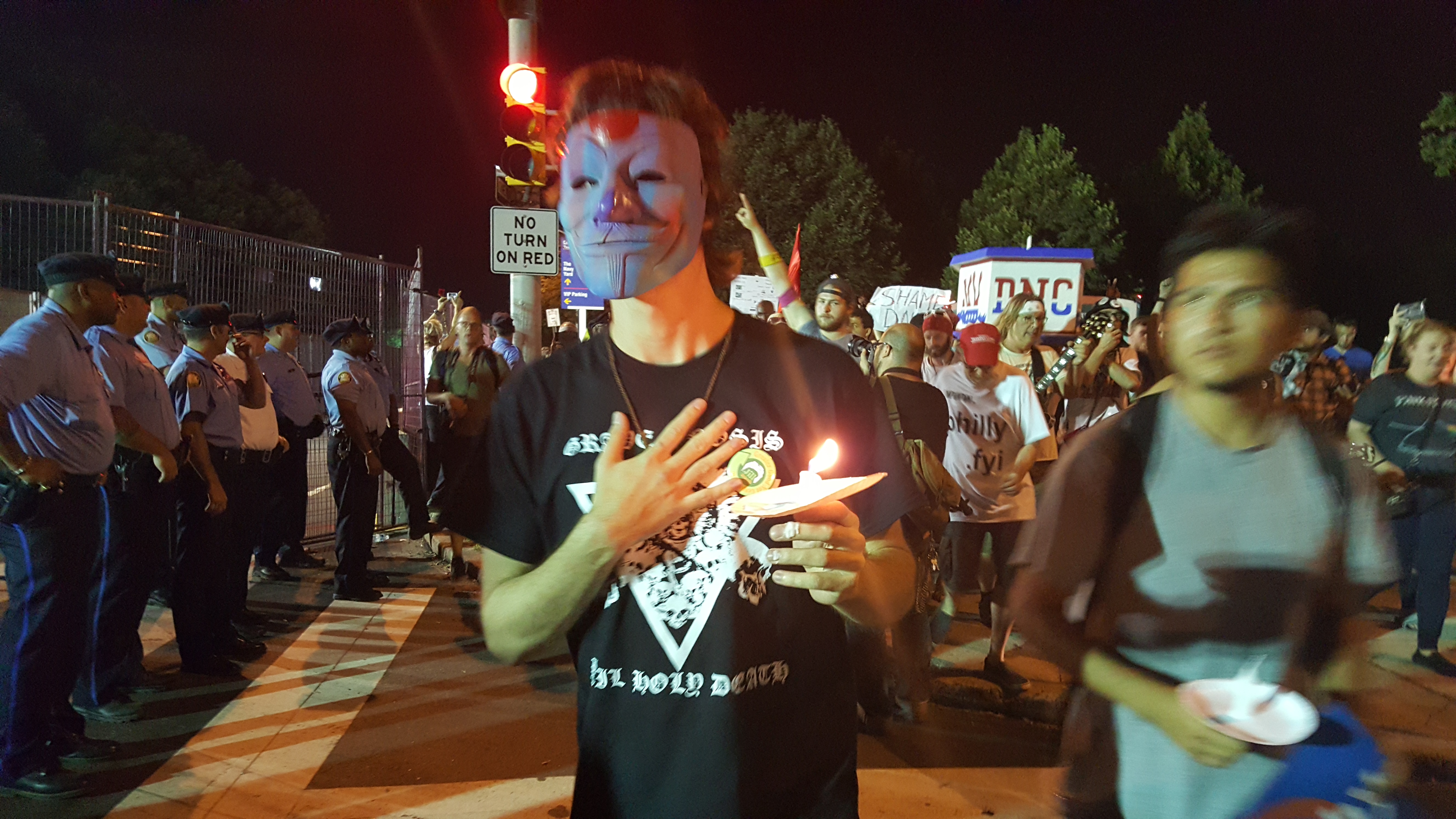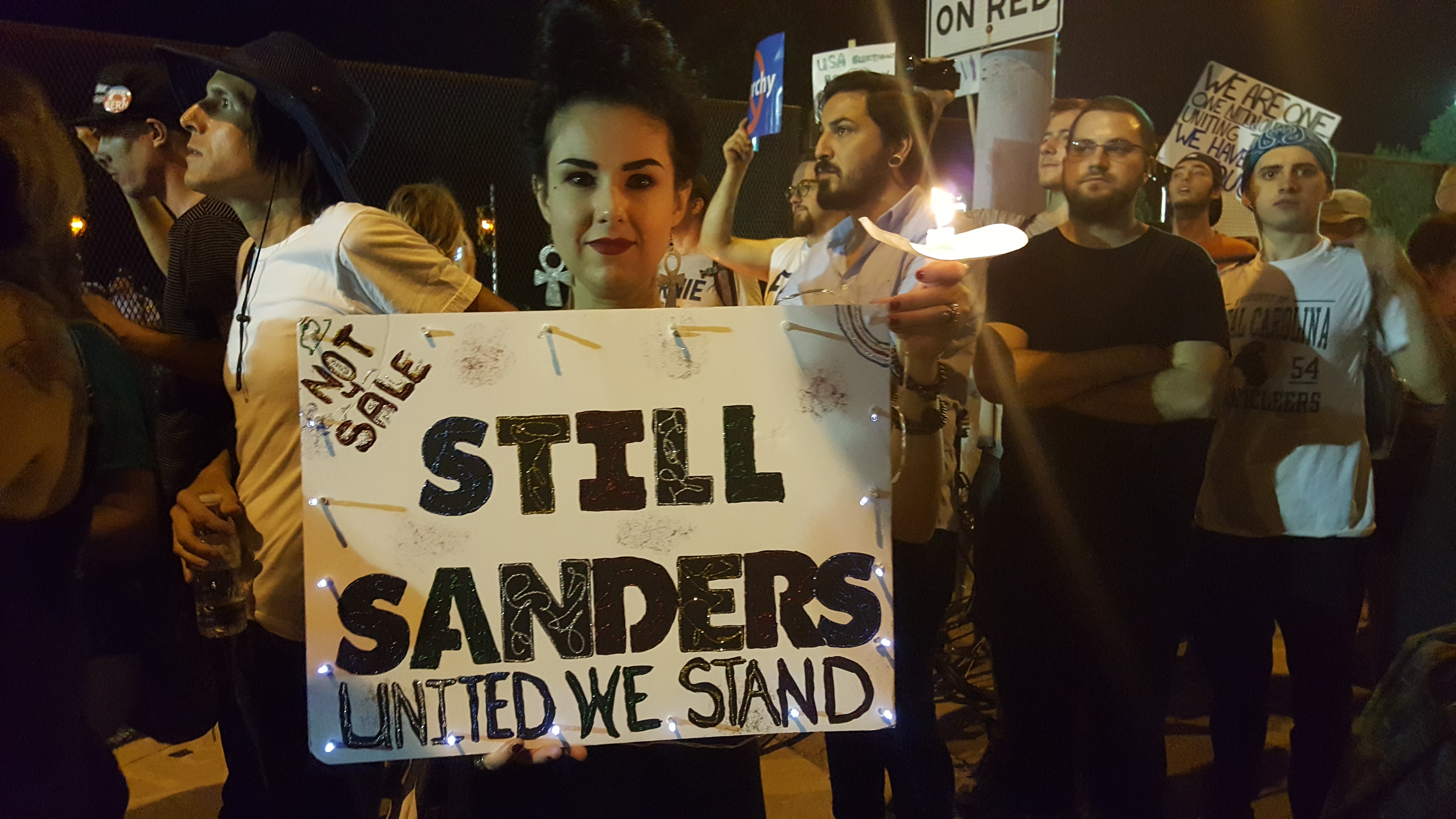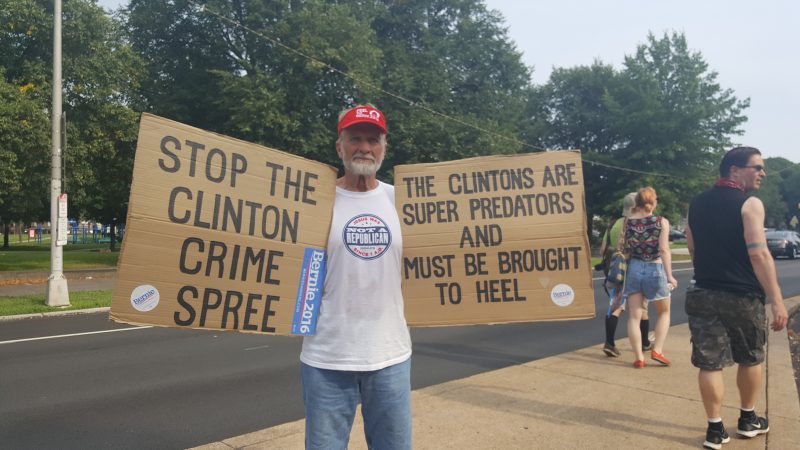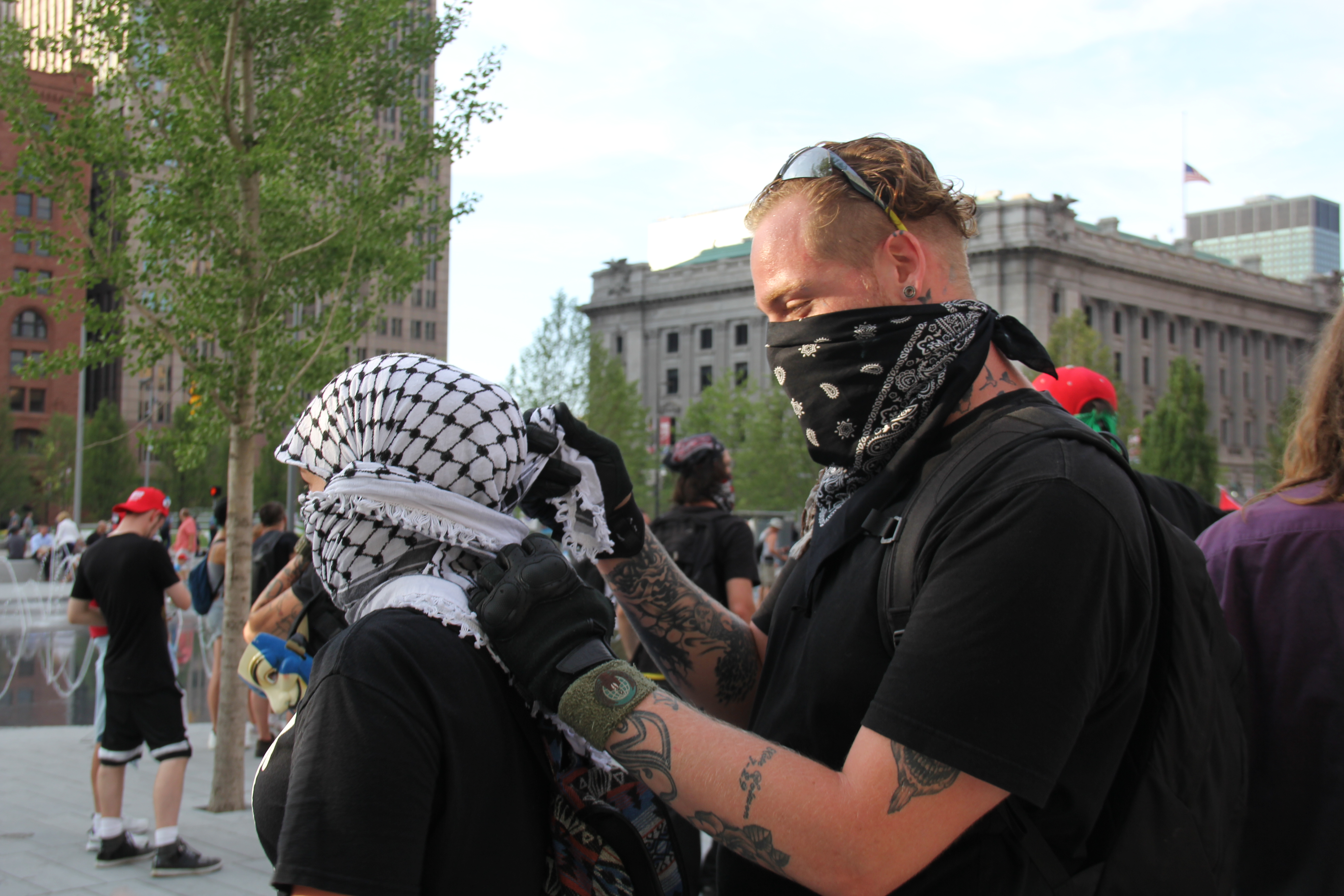The day after delegates inside the Democratic National Convention formally endorsed Hillary Clinton, activists gathered outside the convention site to express their opposition to a controversial trade deal that could be ratified later this year.
On Wednesday, about 150 people gathered under the trees of FDR Park, a public space just outside the massive security fence surrounding the Wells Fargo Center, to demand an end to U.S. support for the Trans-Pacific Partnership, a controversial trade deal that critics warn will devastate democracy and the environment and send health care costs through the roof.
“There’s not a single person this doesn’t impact, but in terms of health care it’s going to raise the cost of health care for everyone,” Dr. Margaret Flowers told MintPress News.
